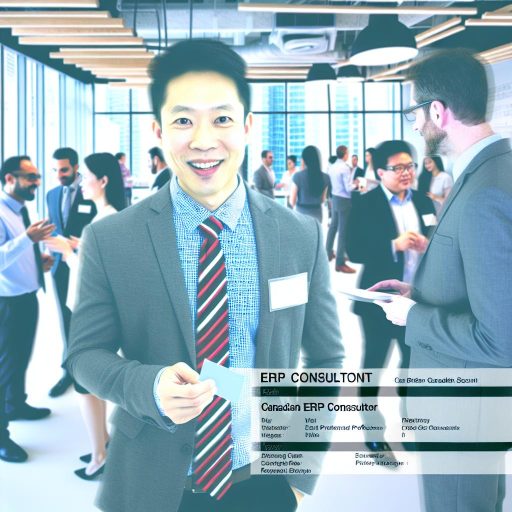Understanding ERP Systems
Key Components of ERP Systems
ERP systems comprise various key components that drive their functionality.
These components include finance, human resources, and supply chain management.
Integration of these components enhances organizational efficiency.
Moreover, they provide a unified database for accurate information sharing.
Functions of ERP Systems
ERP systems serve multiple functions within an organization.
Firstly, they streamline business processes, reducing operational costs.
Secondly, they automate routine tasks, freeing up employee time for strategic initiatives.
Additionally, they facilitate real-time reporting for better decision-making.
The systems also improve compliance with industry regulations and standards.
Benefits of Implementing ERP
Implementing an ERP system offers a multitude of benefits.
It enhances collaboration across departments through shared data.
Furthermore, it improves project management and scheduling accuracy.
Another key benefit is the insight into business performance through analytics.
This insight enables organizations to adjust strategies effectively.
The Rapidly Evolving Tech Landscape
Impact of Technology on ERP Systems
Technology changes happen at a staggering pace today.
As a result, ERP systems continuously evolve to meet new demands.
These shifts require ERP consultants to stay informed and adaptable.
New features and updates can dramatically alter system functionalities.
Consultants must understand these changes to provide valuable insights.
Understanding Industry Trends
Staying updated on industry trends is essential for ERP consultants.
Emerging technologies like AI and IoT are reshaping business processes.
Consultants need to grasp how these innovations affect ERP systems.
For instance, AI can enhance data analysis and decision-making.
Moreover, IoT can improve real-time data collection and monitoring.
Learning from Market Dynamics
The ERP market is influenced by various external factors.
Unlock Your Career Potential
Visualize a clear path to success with our tailored Career Consulting service. Personalized insights in just 1-3 days.
Get StartedEconomic shifts, regulatory changes, and competitive pressures are significant.
Consultants must analyze these factors to strategize effectively.
They should anticipate client needs and prepare accordingly.
Continuous learning equips consultants to navigate these complexities.
The Role of Continuous Learning
Continuous learning enhances consultants’ skills and knowledge base.
It helps them keep pace with technological advancements.
Participating in training and workshops fosters professional growth.
Moreover, learning from peers and industry experts is crucial.
This collective knowledge leads to better service delivery for clients.
Adapting to Client Needs
Clients expect tailored solutions that meet their unique challenges.
Therefore, ERP consultants must be flexible and creative in their approaches.
As the tech landscape evolves, so do client requirements.
Continuous learning enables consultants to adjust strategies accordingly.
They can align solutions with clients’ evolving business goals.
Industry Best Practices: Staying Updated with Continuous Learning
The Importance of Continuous Learning
Continuous learning is vital for ERP consultants.
It allows them to stay relevant in a fast-paced industry.
This practice enhances their skill set and keeps their knowledge current.
As technology evolves, consultants must adapt quickly to these changes.
Furthermore, continuous learning fosters innovative problem-solving skills.
Keeping Up with Industry Trends
ERP consultants should regularly follow industry news and updates.
This helps them understand emerging trends and technologies.
Subscribing to industry journals is one effective way to stay informed.
Attending webinars and conferences also provides valuable insights.
Networking with peers can lead to knowledge sharing and collaboration opportunities.
Utilizing Online Learning Platforms
Many online platforms offer courses specifically tailored for ERP consultants.
These platforms provide flexibility in learning schedules.
Consultants can choose courses that enhance their existing skills or explore new domains.
Examples include platforms like Coursera, Udemy, and LinkedIn Learning.
These resources allow consultants to learn from industry experts.
Engaging in Professional Certifications
Obtaining professional certifications is an effective way to validate expertise.
Certifications can boost a consultant’s credibility and marketability.
Organizations like SAP, Oracle, and Microsoft offer recognized certification programs.
Such credentials signal a commitment to professional growth and industry standards.
Establishing a Personal Learning Plan
Consultants should create personalized learning plans to guide their growth.
Setting specific, achievable goals fosters a structured approach to learning.
Additionally, tracking progress allows for adjustments as needed.
Incorporating both technical and soft skills is essential for comprehensive development.
Implementing Learning in Real-World Scenarios
Applying new knowledge in real-life situations is crucial.
Consultants benefit from integrating learning with their daily tasks.
This application reinforces concepts and enhances retention of information.
Moreover, it builds confidence and proficiency in using new strategies or tools.
Find Out More: Importance Of Ethics In Artificial Intelligence Development
Benefits of Continuous Learning for Personal and Professional Growth
Enhancing Skill Sets
Continuous learning empowers ERP consultants to enhance their skill sets.
It allows them to stay updated with the latest trends in technology.
Additionally, learning new software can improve their efficiency and effectiveness.
This adaptability helps them meet client demands with confidence.
Increasing Market Value
Having diverse skills increases market value for ERP consultants.
Employers prefer consultants who demonstrate ongoing professional development.
This commitment differentiates them from competitors in a growing field.
A higher market value often leads to better job opportunities and salaries.
Boosting Confidence and Competence
Engaging in continuous learning boosts both confidence and competence.
Consultants feel more equipped to tackle complex challenges.
This confidence translates into better client relationships and project outcomes.
Moreover, clients appreciate consultants who showcase their expertise.
Fostering Innovation
Continuous learning fosters an environment for innovation and creativity.
Consultants who learn about emerging technologies can implement new solutions.
This innovation can drive business success for both the consultant and clients.
Ultimately, it positions them as thought leaders in the ERP space.
Building a Professional Network
Opportunities for learning often lead to networking with other professionals.
Attending workshops and seminars facilitates relationship building.
A strong professional network can lead to referrals and collaboration.
Networking also provides insights into industry best practices and new ideas.
Gain More Insights: Building Decentralized Applications as a Blockchain Developer
The Role of Certifications and Training in Advancing ERP Skills
Importance of Certifications
Certifications validate an ERP consultant’s expertise.
They demonstrate commitment to continual improvement.
Moreover, certifications enhance professional credibility.
Employers often prefer certified consultants.
This preference can lead to better job opportunities.
Types of Relevant Certifications
Several key certifications exist in the ERP field.
For instance, SAP Certified Application Associate is highly recognized.
Oracle certifications also hold significant value.
Additionally, Microsoft Dynamics certifications are widely utilized.
Each certification offers specific advantages to consultants.
Value of Continuous Training
Training programs keep consultants updated on new trends.
They provide access to the latest software tools.
Furthermore, training often covers emerging best practices.
Engaging in training fosters professional growth.
This growth can lead to enhanced service offerings.
Networking Opportunities
Certifications and training create networking possibilities.
Consultants may connect with others in their field.
Networking can lead to collaborative projects and knowledge sharing.
Such connections often prove beneficial for career progression.
Investment in Career Development
Investing in certifications and training pays off in the long run.
Consultants can command higher salaries due to their qualifications.
This investment leads to increased job satisfaction.
Ultimately, it positions consultants as industry leaders.
You Might Also Like: Common Challenges Faced by Blockchain Developers Today

Networking Opportunities: Leveraging Continuous Learning for Career Advancement
Building Strong Professional Connections
Continuous learning enhances your knowledge and skills as an ERP consultant.
By participating in workshops, you meet industry experts and peers.
Networking at these events opens doors to career advancement opportunities.
Moreover, strong connections can lead to referrals and partnerships.
Engaging in Industry Associations
Joining industry-specific associations provides numerous networking opportunities.
These organizations often host networking events and conferences.
Regular attendance helps you stay updated on industry trends and practices.
It also strengthens your professional credibility and visibility.
Utilizing Online Platforms
Online platforms like LinkedIn facilitate networking beyond geographical boundaries.
Share your continuous learning journey through posts and articles.
Engage with content from other professionals to build meaningful connections.
Active participation in discussions can showcase your expertise to a larger audience.
Participating in Cross-Disciplinary Learning
Cross-disciplinary learning broadens your perspective as an ERP consultant.
Attend workshops that integrate different fields such as finance, analytics, and IT.
This diversity fosters innovative thinking and problem-solving skills.
As a result, you will attract diverse professional connections.
Leveraging Social Media
Platforms like Twitter and Facebook allow you to follow industry leaders.
Join relevant groups to engage with fellow ERP professionals.
Share your insights and invite discussions around new learning topics.
This engagement amplifies your reach and builds your professional network.
Explore Further: Steps to Becoming a Certified ERP Consultant in Canada
Case Studies: Successful ERP Consultants Who Embrace Lifelong Learning
Transformational Journeys
Many successful ERP consultants started their careers with limited knowledge.
Through continuous education, they transformed their skill sets drastically.
For instance, Sarah Nguyen leveraged online courses to master SAP software.
Her commitment to learning enabled her to lead complex implementations.
Consequently, she gained recognition within the industry.
Networking and Knowledge Sharing
Successful consultants understand the value of networking.
James Patel frequently attends industry conferences and webinars.
These events expose him to innovative practices and technologies.
Moreover, he actively shares his insights with others in the field.
This exchange of knowledge fosters a culture of continuous improvement.
The Adaptability Factor
The ERP landscape changes rapidly, requiring consultants to adapt.
Maria Thompson embraced ongoing training to keep pace with emerging trends.
Her dedication allowed her to implement cutting-edge solutions for clients.
As a result, she has helped numerous organizations streamline operations.
This adaptability enhances her reputation as a trusted expert.
Embracing New Technologies
Successful ERP consultants embrace new technologies in their work.
Mark Ramirez consistently engages in professional development training.
He focuses on AI and machine learning applications within ERP systems.
His proactive approach keeps his clients at the forefront of innovation.
This foresight ensures they maintain a competitive advantage.
Client-Centric Learning
Lifelong learning helps consultants better serve their clients.
Alice Kim regularly seeks customer feedback to refine her skills.
This process allows her to tailor solutions that meet client needs effectively.
By staying updated, she enhances client satisfaction and loyalty.
Ultimately, this dedication leads to ongoing business opportunities.
Strategies for Implementing Continuous Learning in Daily Work Routines
Engage with Online Learning Platforms
Online learning platforms provide valuable resources for ERP consultants.
These platforms offer courses tailored to industry needs.
Consultants can access content anytime and anywhere.
This flexibility encourages ongoing learning and development.
Participate in Professional Communities
Joining professional communities fosters collaboration among consultants.
These networks share insights and best practices.
Engaging in discussions stimulates fresh ideas and perspectives.
Additionally, it creates connections for future opportunities.
Attend Workshops and Seminars
Workshops and seminars deliver hands-on experiences.
These events allow consultants to apply new skills directly.
Moreover, participants can learn from industry leaders.
Networking during these events expands professional relationships.
Incorporate Reading into Daily Routines
Setting aside time for reading enhances knowledge retention.
Consultants should read industry-relevant books and articles regularly.
Moreover, subscribing to relevant journals keeps you updated.
Incorporating reading helps consultants remain informed about trends.
Utilize Company Resources
Organizations often provide internal training resources.
Consultants should take advantage of these opportunities.
Participating in company-sponsored programs facilitates skill enhancement.
Furthermore, it aligns personal goals with organizational objectives.
Additional Resources
Rakshit Rekhi – Blockchain infrastructure/consulting services – Self …
Paul Pearson, PMP – Data Enablement Project Manager (Consultant …




